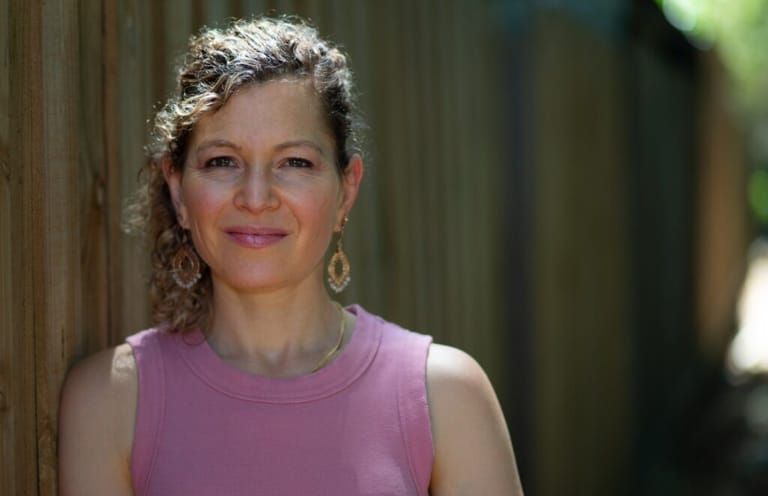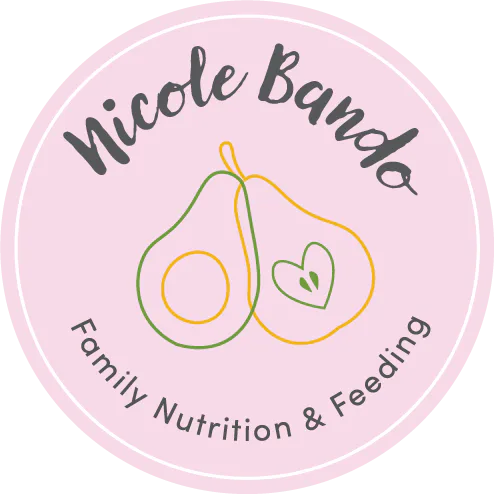Nourishing Melbourne's Future: Specialised Paediatric Dietitian Services
About Nicole

When Nicole had her two children, she realised how little information was available for parents to confidently feed their children. Nicole has more than twenty years of experience as a Clinical Dietitian.
After having children, she felt a strong desire to help parents navigate the challenging period of life with a young family. She trained as a Breastfeeding Counselor with the Australian Breastfeeding Association and then certified as an International Board Certified Lactation Consultant. She completed the Royal Children’s Hospital Certificate of Paediatric Nutrition & Dietetics to bring a holistic and specific focus to her private practice, which she began at NEST Family Clinic in 2015.
Nicole merges the professions of lactation and nutrition to bring a unique perspective and give parents the tools, knowledge, and confidence to feed their children.
How it Works
Step One
You book an initial Paediatric Dietitian appointment at NEST Family Clinic, Elsternwick, or Telehealth online.
Step Two
The initial appointment is a comprehensive assessment based on your child’s medical and feeding history, family background, analysis of growth data and a diet history that encompasses all aspects of feeding and eating, as it relates to their unique routine, in the context of your family. Specific concerns related to growth, nutrient deficiencies, selective eating, breast or bottle feeding, food allergies and/or intolerances will be addressed, and your questions answered. With discussion, evidence-based recommendations will be provided to suit your family’s unique needs, alongside a follow-up plan.
Step Three
A follow up appointment of 30 to 60 minutes will be made. In some cases email or phone call follow up may occur between appointments. Nicole may liaise with your child's multidisciplinary team and recommend specific tests before your next appointment.



Paediatric Dietitian FAQ
What is a paediatric dietitian and why is it important for my child?
A dietitian with specialist training in paediatric nutrition (Nicole has completed the Certificate of Paediatric Nutrition & Dietetics, Royal Children’s Hospital), who can assess the nutritional status, growth and nutritional requirements of infants, children, and adolescents, including those with acute and chronic diseases or special healthcare needs. A paediatric dietitian will provide evidence based, specific and tailored nutrition advice for the individual and family, considering the changing physiological, psychological, and social needs, treatment, and life stage, including liaison with the multidisciplinary team to assist in family and patient-centred care (adapted from Dietitians Australia Paediatric Dietitian Role Statement).
What qualifications and experience does a paediatric dietitian have?
An Accredited Practising Dietitian is a credentialled nutrition expert, university trained in medical nutrition and evidence-based therapy. Nicole has a Bachelor of Nutrition & Dietetics from Monash University (2003). She has completed additional training, including the Certificate of Paediatric Nutrition & Dietetics, Royal Children’s Hospital and is an International Board Certified Lactation Consultant, trained to assess and support the nutrition and feeding needs of babies, children and adolescents.
Can a paediatric dietitian help with my child's food allergies?
Adverse Food Reactions is a broad term that describes a wide range of immune-mediated (allergy) and non-immune mediated (intolerance) reactions to foods. In the case of food allergy, reactions such as anaphylaxis may be life-threatening.
Other adverse food reactions, while not life-threatening, can adversely affect physical, mental, and social health, as well as nutrition and overall wellbeing. Accredited Practising Dietitians (APD’s) possess expert knowledge and skills in providing tailored education to help minimise reactions, optimise nutrition, prevent deficiencies, and enhance quality of life.
An APD can provide nutrition advice appropriate for age and stage when working with children and their families – including breastfeeding, maternal diet manipulation, infant formulae, and suitable milk substitutes for infants and children.
An APD can manage patients with complex nutrition needs (for example, multiple food allergies, growth compromise, multiple illnesses), within the multidisciplinary team, including consultation with an appropriate medical practitioner.
How do I know if my child needs to see a dietitian?
As a parent, if you have concerns about your child’s nutrition, including breast, bottle or mixed feeding, starting solids growth (under- or overweight), risk of nutrient deficiencies, selective eating, food allergies, intolerances, gastrointestinal issues, vegan or vegetarian diets, a paediatric dietitian will assess your child’s unique needs and provide evidence-based, family support.
What can I expect from the first appointment with a paediatric dietitian?
The initial appointment is 60 minutes and is a comprehensive assessment based on your child’s medical and feeding history, family background, analysis of growth data and a diet history that encompasses all aspects of feeding and eating, as it relates to their unique routine, in the context of your family.
With discussion, evidence-based recommendations will be provided to suit your family’s unique needs, alongside a follow-up plan, which may include liaison with your child’s multidisciplinary team, or tests, including pathology or stool/urine samples (for which a GP appointment will be necessary).
Are your Melbourne paediatric dietitian services covered by Medicare or private health insurance?
Your child may be eligible for a team care arrangement, if he/she has a chronic condition; and complex care needs being managed by a medical practitioner (other than a specialist or consultant physician). This provides Medicare rebate for up to 5 visits in a calendar year.
Many private health insurers provide rebate for dietetic services. Please check with your provider.
Do I need a referral from a GP to visit a paediatric dietitian?
A referral is not necessary, however can be helpful if there is a complex history, including specialist involvement and test results.
How does a paediatric dietitian support children with special dietary needs?
Nicole is an Accredited Practising Dietitian, who has completed the Certificate of Paediatric Nutrition & Dietetics, Royal Children’s Hospital. She can assess the nutritional status, growth and nutritional requirements of infants, children, and adolescents, including those with acute and chronic diseases or special healthcare needs.
A paediatric dietitian will provide evidence based, specific and tailored nutrition advice for the individual and family, considering the changing physiological, psychological, and social needs, treatment, and life stage, including liaison with the multidisciplinary team to assist in family and patient-centred care (adapted from Dietitians Australia Paediatric Dietitian Role Statement).
Can the dietitian provide support for picky eaters?
Picky eating can be stressful and challenging for many families. During our initial 60-minute appointment, I will assess your little one’s growth, medical history, a detailed feeding history to learn the ‘what’ and ‘how’ your child is eating.
Part of this is understanding the family’s unique eating habits. With this information, I will explain which foods your child is eating enough of and those foods or nutrients we need to focus on, e.g. iron. I will advise whether there are other concerns such as food aversions or sensory issues.
Once the assessment is done, together we create a management strategy that fits with your unique family’s needs. This will be practical, whole family based and provide a detailed guide of ‘what’ (types and quantities of foods to include), as well as ‘how’ (mealtime & responsive feeding management strategies).
We will address growth concerns (not enough or too much) and discuss normal growth expectations. Over time, we will add and refine this strategy, based on your child’s progress and growth. I will advise if your child may need blood tests or additional investigations and I will refer, or liaise with your other healthcare professionals, if needed.
How often will my child need to see the paediatric dietitian?
This is based on your child’s unique needs and circumstances and follow-up may be required within weeks or months. A plan will be discussed with your during our initial consultation.
Does the paediatric dietitian offer telehealth consultations for patients in and outside Melbourne?
Nicole provides Telehealth and face-to-face consultations.
Can a paediatric dietitian help with weight management for children?
Are you worried that your child’s weight is higher than is healthy, or they are gaining weight too quickly? Does your child seem hungry all the time and rarely full? As a Melbourne-based Paediatric (Children’s) Dietitian, I discuss this very emotional topic with parents frequently.
Our initial 60-minute assessment will cover your child’s growth, development and early nutrition and feeding history. I will work with you to understand your child’s eating habits (what, how, when) as part of the greater family. With this information, I will explain which foods your child is eating enough of and those foods or nutrients we need to focus on, e.g. iron. I want to understand your child (and family’s) relationship with food and eating.
Once the assessment is done, together we create a management strategy that fits with your unique family’s needs. This will be practical, family-based and provide a detailed guide of ‘what’ (types and quantities of foods to include), as well as ‘how’ (meal time & responsive feeding management strategies). We will discuss healthy growth and your child’s growth goals and how to recognise and respond to hunger and fullness signals. Please note that weight loss is not encouraged in children; rather growing taller, or into their bodies. I will provide you with how to talk about food and nutrition at home and help your child create a positive relationship with food.
Over time, we will refine this strategy, based on your child’s progress and growth. I will advise if your child may need blood tests or additional investigations and I will refer, or liaise with your other healthcare professionals, if needed (such as their paediatrician or GP).
What resources or follow-up support does a paediatric dietitian provide?
You will receive detailed written recommendations from our assessment, including meal and snack guides, unique to your child and family. Additional resources will be provided as needed. A follow-up plan may involve: additional appointments, liaison with your multidisciplinary team (GP, paediatrician, maternal health nurse), and a request for your child to have specific tests (e.g. blood tests).
How can a paediatric dietitian help with my child's growth concerns?
If your child has crossed percentiles on their growth chart, is under the lowest percentile, or has stopped gaining weight, or is gaining weight too rapidly, you may be naturally feeling worried and unsure what to do.
Our initial 60–90 minute assessment will cover your child’s growth, development, early nutrition and feeding history. If breastfeeding, bottle, or mixed feeding, I will observe a feed to assess if your baby is drinking milk efficiently. For an older child eating solids, I will assess your child’s eating habits (what, how, when) as part of the greater family’s habits. I will also assess a breastfeeding mother’s diet and recent medical and weight history as this can impact a baby’s growth.
With this information, I will explain if your child is receiving adequate breast/bottle/solids, which foods your child is eating enough of and those foods or nutrients we need to focus on increasing. I will provide feedback on the diet of a breastfeeding mother.
Together, we create a management strategy that fits with your unique family’s needs. This will be practical, whole family-based and provide a detailed guide of ‘what’ (types and quantities of breastfeeds/bottles/foods to include), as well as ‘how’ (mealtime & responsive feeding management strategies). Breastfeeding and bottle-feeding strategies will be provided depending on the child’s needs. We will discuss healthy growth, weight goals and how to recognise and respond to hunger and fullness signals. Over time, we will refine this strategy, based on your child’s progress and growth. I will advise if your child may need blood tests or additional investigations and refer, or liaise with your other healthcare professionals, if needed (such as their paediatrician or GP).
What's the difference between a paediatric dietitian and a nutritionist?
In Australia, all dietitians are nutritionists. But not all nutritionists can call themselves a dietitian.
As a profession, nutritionists aren’t regulated and can have limited qualifications.
Dietitians are university educated and qualified to deliver evidence-based services, including:
- food service management
- group dietary therapy
- individual dietary counselling
- medical nutrition therapy
Dietitians have the knowledge and skills found in the National Competency Standards for Dietitians.
(From https://dietitiansaustralia.org.au/working-dietetics/credentialing-dietitians)
How is a child's nutrition plan personalised to their needs?
Our initial 60-minute assessment will cover your child’s growth, development and early nutrition and feeding history. I will work with you to understand your child’s eating habits (what, how, when) as part of the greater family. With this information, I will explain which foods your child is eating enough of and those foods or nutrients we need to focus on, e.g. iron.
Once the assessment is done, together we create a management strategy that fits with your unique family’s needs. This will be practical, family-based and provide a detailed guide of ‘what’ (types and quantities of foods to include), as well as ‘how’ (mealtime & responsive feeding management strategies). We will discuss healthy growth and your child’s growth goals.
Over time, we will refine this strategy, based on your child’s progress and growth. I will advise if your child may need blood tests or additional investigations and I will refer, or liaise with your other healthcare professionals, if needed (such as their paediatrician or GP).

